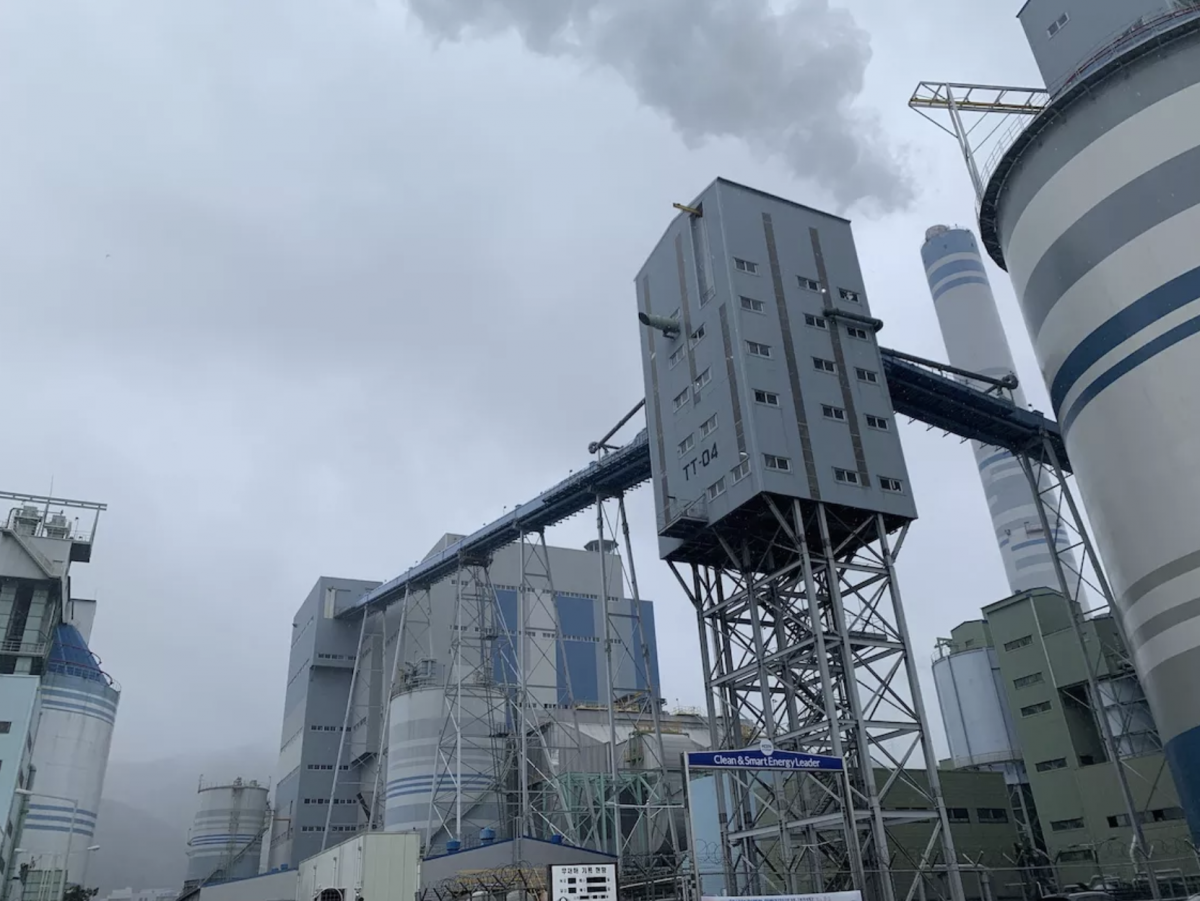[Etc] Blue Skies Day? Korean groups team up to fight government on coal (Global Construction Review)
- DATE : 2020.09.09 10:17
- HIT : 1,970
To mark the first International Day of Clean Air for Blue Skies, which is today, a coalition of 15 civic groups in South Korea have joined forces to pressure the government to end coal power by 2030.
The country has 60 coal plants in operation and seven more under construction. It is one the world’s top coal importers and financiers of coal power projects overseas.
The initiative drew praise from Michael Bloomberg, the billionaire American businessman, philanthropist and former New York City mayor, as well as Christiana Figueres, former executive secretary of the UN Framework Convention on Climate Change.
Campaigners say the government is hypocritical because it proposed “Blue Skies Day” to the United Nations last year to highlight the fatal effects of air pollution while, in practice, it promotes the expansion of dirty coal power at home and abroad.
The UN names air pollution as the single greatest environmental risk to human health, with indoor and outdoor pollution causing some 6.5 million premature deaths a year across the world.
It is responsible for about a third of deaths from stroke, chronic respiratory disease, and lung cancer, and a quarter of deaths from heart attack, the UN says.
The new “Korea Beyond Coal” movement follows similar campaigns in the US, which has seen 300 coal plants retired in the last decade, and in Europe, where pressure groups have helped secure the closure, or closure announcements, of 145 coal plants since 2016.
Sixty-three of these European retirements and announcements happened in 2020 alone.
European coal power generation fell by 32% so far in 2020, following a 24% fall in 2019, according to this analysis.
“Without the complete retirement of coal power, it’s impossible for the country to meet the Paris climate goals,” said Park Jee-hye, Director of Solutions For Our Climate, one of the 15 groups, at the launch event in Seoul today.
“The government must understand that if this international day has any meaning, immediate action is needed to keep our skies blue and avoid catastrophic impacts of the climate crisis.”
“The government has pledged to rapidly phase out coal plants, but under the current plan, they are doing nothing but maintaining the status quo by operating coal plants for three more decades,” said Lee Ji-eon, a campaigner from the Korea Federation for Environmental Movements (KFEM).
“They should set a deadline for a complete coal phase-out and legislate a law that bans coal power.”
Groups say the cost of renewable power is falling fast, making coal power not only dirty, but uneconomical.
South Korea made a “Green New Deal” pledge this year, but it remains a main node in the global coal industry.
It is the world’s fourth-largest importer of coal and the third biggest public investor in overseas coal plants.

Former New York City mayor Michael Bloomberg addressing a forum on guns last year (Gage Skidmore/CC BY-SA 2.0)
It relies on coal for more than 40% its electricity, with just 5% from renewable sources. Campaigners say coal pollution causes nearly 1,000 premature deaths in the country a year.
Coal power, they add, is the single largest source of CO2 emissions globally.
Supporting the Korean campaign is billionaire American businessman, Michael Bloomberg.
“When countries phase out coal-fired power plants, they reap the health and economic benefits of clean energy – and help accelerate the global fight against climate change,” he said.
“We’ve made great strides through Beyond Coal campaigns in the US and Europe, and I want to thank our Korea Beyond Coal partners for expanding this movement to Asia. Together, we can speed up our progress cleaning the air we breathe and achieve a greener, healthier, and more prosperous future.”
Also cheering it on is Christiana Figueres, former executive secretary of the UN Framework Convention on Climate Change.
“In the face of both a near-term health pandemic and a long-term climate crisis, it is not possible to call for ‘blue skies’ without fundamentally transforming energy systems away from polluting coal to clean, renewable sources,” she said today.
“The region and the world looks to South Korea for leadership as we all strive for a healthy recovery,” she added.
The Korean pressure campaign begins as the government is scheduled to announce its latest Long Term Plan for Electricity Supply and Demand by the end of the year.
Top image: Delhi, India, blanketed by smog, 2019. The UN says air pollution causes some 6.5 million premature deaths a year across the world (Prami.ap90/CC BY-SA 4.0)
Campaigners say the government is hypocritical because it proposed “Blue Skies Day” to the United Nations last year to highlight the fatal effects of air pollution while, in practice, it promotes the expansion of dirty coal power at home and abroad.
The UN names air pollution as the single greatest environmental risk to human health, with indoor and outdoor pollution causing some 6.5 million premature deaths a year across the world.
It is responsible for about a third of deaths from stroke, chronic respiratory disease, and lung cancer, and a quarter of deaths from heart attack, the UN says.







 Prev
Prev
 Next
Next
